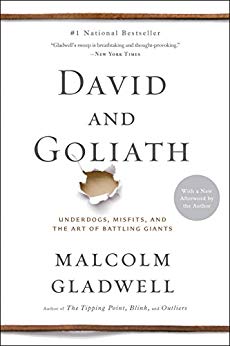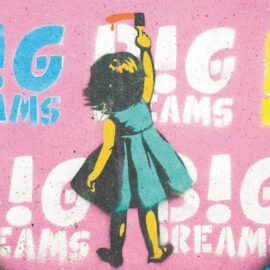

This article is an excerpt from the Shortform summary of "David and Goliath" by Malcolm Gladwell. Shortform has the world's best summaries of books you should be reading.
Like this article? Sign up for a free trial here .
From an early age, we’re taught that working well with others is imperative for success. But are there advantages to having a disagreeable personality?
Sometimes, the most powerful people we know are the most disagreeable. We’ll cover why some of these powerful people may be able to credit their disagreeable personalities for their success.
The Surprising Link Between Disagreeable Personalities and Dyslexia
In studies of some of the most successful business people and entrepreneurs, two themes emerge in tandem: About one-third of successful entrepreneurs have dyslexia, and many of these same entrepreneurs have a disagreeable personality. How does this disagreeableness arise? Is it related to having dyslexia? If you grow up a misfit (due to your struggle with reading), you are practiced in not caring what others think of you. This carries through to your adult life.
One psychologist argues that there are three qualities innovators tend to have in common.
- Openness: They are open to new ideas and can think outside the box.
- Conscientiousness: They are disciplined and have enough grit to see an unconventional idea through to the product stage.
- Disagreeableness: They are willing to ruffle some feathers and do things others don’t approve of.
- Think of the Brit Lawrence of Arabia dressing in Arab clothing, speaking Arabic, and using unconventional war tactics, or Vivek Ranadivé outraging other coaches by instructing his 12-year-old basketball players to play full-court press.
The first two entrepreneurial qualities make sense, but disagreeableness? Why is a disagreeable personality an asset? If you’re worried about what people think of you, you’re not going to act on your unconventional—possibly revolutionary—ideas.
Example #1: The Benefits of a Disagreeable Personality
Ingvar Kamprad, the founder of IKEA (and is dyslexic), first upset the status quo by selling unassembled furniture cheaply and angering his competitors. He took his second major social risk when manufacturers boycotted IKEA; at the height of the Cold War, he turned to communist Poland to manufacture IKEA furniture. The gamble paid off. IKEA is still an enormously successful company, and it might not be around today if Kamprad had cared about the feelings of his compatriots. Kamprad’s disagreeable personality worked in his favor.
Example #2: The Benefits of a Disagreeable Personality
Gary Cohn, the president of Goldman Sachs, was held back a year in elementary school. He has dyslexia, and it still takes him about 6 hours to read 22 pages. He got his job on Wall Street when he hopped into a cab with a guy who looked like he might have some power in one of the big brokerage firms. Cohn lied to him: He said he knew all about buying and selling options. (Cohn had barely made it through high school and, at the time, had a job selling aluminum siding. He had nothing to lose.) Lying is a trait of someone with a disagreeable personality. The following week, the man hired Cohn (after Cohn gave himself a crash course in options trading, no small task, even for someone without a learning disability.) This was a “disagreeable” act, an act in which Cohn didn’t care about the social consequences of pretending to be someone he wasn’t.
Sometimes, you need to be disagreeable to get ahead. In these situations, people with disagreeable personalities shine.
———End of Preview———

Like what you just read? Read the rest of the world's best summary of "David and Goliath" at Shortform . Learn the book's critical concepts in 20 minutes or less .
Here's what you'll find in our full David and Goliath summary :
- Why being the underdog can actually be an advantage
- Why you shouldn't be afraid of powerful giants
- Strategies to get an edge when you're overpowered






